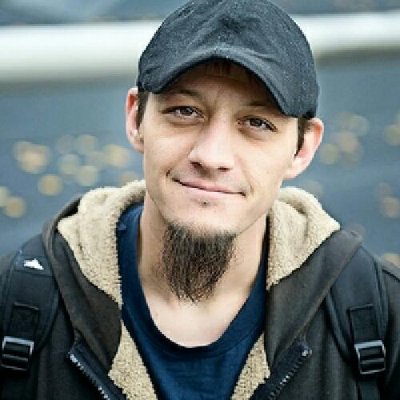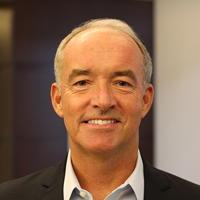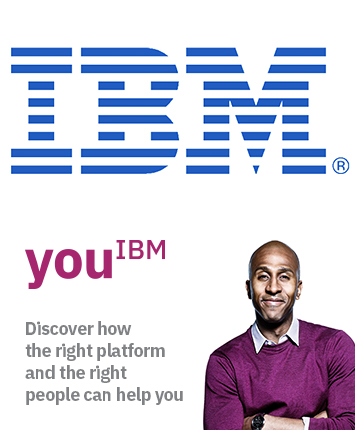2017 Executive Summit: In Pursuit of Digital Happiness
The whole world seems just a swipe away. But with all these apparent benefits, most have not stopped to ask: does technology make people happier?
 Thursday, August 24, 2017 12:00 AM - Friday, August 25, 2017 12:00 AM
Thursday, August 24, 2017 12:00 AM - Friday, August 25, 2017 12:00 AM
 W Chicago - Lakeshore
W Chicago - Lakeshore
For the past eighteen years PR agency Edelman has been measuring World Wide Trust levels. The 2017 version of their trust barometer showed a Total Meltdown of trust in corporations and institutions while at the same time the trust in technology continues to be remarkably high.
One explanation for putting so much trust in tech, is the high expectations people have about future technological breakthroughs. There's so much that remains to be desired: from self-driving cars to frictionless shopping experiences. But will technology be able to live up to those expectations or are we in for a massive disillusion?
In Code We Trust
Trust is defined as a confident relationship with the unknown. But we're far from comfortable looking at the unknown future. We clearly see how trust is shifting from the institutional hierarchies towards the network economy. Every organization is at risk of being disrupted by a more trusted version of itself. Organizations like Tripadvisor, Amazon and Airbnb are using reviews and ratings to organize our trust. But at the same time, they are so successful at monetizing their platforms, that trust is becoming a monopoly. Can we trust markets where so much power is in the hand of just a few companies?
And while trust is steadily shifting, our perception of what is real and what is not continues to be disrupted. Facebook, Twitter and Google have primarily based their business models on advertising. These so-called attention merchants are massively publishing clickbait content and fake news to draw us in. Can we really put our trust in their code organizing our lives while losing grip on the truth?
So, before we all take a huge leap into the unknown, we should reconsider how to organize trust in a sustainable manner. Can we distribute trust in technology-based solutions such as the token economy, autonomous intelligent systems and self-organizing platforms? Are we trust-ready for the next digital waves, for instance in biotechnology? What are our options really and what should we take into consideration before we decide who and what to trust?
- Will your company be disrupted by a more trusted version of itself?
- Can code really be trusted and how can the entire IT industry work to improve the status-quo?
- Will citizens and consumers take back control over their digital identity and data?
These are the questions we will address in this year’s edition of the Sogeti Executive Summit.
We will bring together a group of visionary thought leaders and executives from many different industries for a strategic dialogue to develop a perspective on ‘In Code We Trust’.
It is with great pleasure that Sogeti’s Executive Management cordially invites you to attend the Annual Sogeti Executive Summit – US Edition that will take place in Chicago, Illinois on August 2-3, 2018.
The Sogeti Executive Summit – US Edition will start with a lunch on Thursday, August 2, and will end after lunchtime on Friday, August 3. The venue for this event is The LondonHouse, Chicago.
For additional information about the program, the speakers and the venue, as well as a report on the 2017 edition of the event, we invite you to visit the Sogeti Executive Summit website at www.us.sogeti.com/summit2018.

TIM CANNON
Tim Cannon is an American software developer, entrepreneur, and biohacker based in Pittsburgh, Pennsylvania. He is best known as the co-founder and Chief Information Officer of Grindhouse Wetware, a biotechnology startup company that creates technology to augment human capabilities. Cannon has spoken at conferences around the world on the topics of human enhancement, futurism, and citizen science. He currently has a radio-frequency identification(RFID) tag in his hand and magnetic implants in a finger, wrist, and tragus, causing him to be labeled a cyborg by media outlets including Business Insider, Newsweek, The Awl, and others.
ESKO KILPI
Esko Kilpi explores an intellectual foundation for post-industrial work at Sitra, the Finnish Innovation Fund in Helsinki. He also shares his time with the Adianta School for Leadership and Innovation in New Delhi and his own ensemble. Esko Kilpi Company consists of a group of researchers and strategists. The focus of the group is on combining the art of interaction, the sciences of social complexity, and the design of digitally native practices. Their theoretical framework comes from sociology, relational psychology, network theory, computer science, cognitive neuroscience, and sciences of complexity. What we all want is to help create a human-centric future of work.
ANDREW KEEN
Andrew Keen is one of the world’s best-known and controversial commentators on the digital revolution. He is the author of three books: Cult of the Amateur, Digital Vertigo and his current international hit The Internet Is Not The Answer which the London Sunday Times acclaimed as a "powerful, frightening read" and the Washington Post called "an enormously useful primer for those of us concerned that online life isn't as shiny as our digital avatars would like us to believe".
He is executive director of the Silicon Valley innovation salonFutureCast, the host of the popular Internet chat show "Keen On", a Senior Fellow at CALinnovates, a columnist for CNN and a much acclaimed public speaker around the world.
JAMES MCQUIVEY
James is a vice president and principal analyst at Forrester Research and the foremost analyst tracking and defining the power and impact of digital disruption on traditional businesses. His consumer models identify the ways consumers have embraced digital experiences and platforms, and his strategy models help companies prepare to serve those consumers. He applies this knowledge to a wide variety of industries, from consumer media to consumer technology, from financial services to retail and consumer products. In February 2013, James published his book Digital Disruption: Unleashing the Next Wave of Innovation.
PETER LEYDEN
Peter Leyden is an expert in new technologies and future trends who frequently gives keynote talks and works for innovative organizations out to reinvent fields. Leyden was managing editor at the original Wired Magazine, and worked at Global Business Network, the pioneering think tank on the future. He was founding director of the New Politics Institute helping reinvent politics on the Internet. Leyden currently is founder and CEO of Reinventors, a network of innovators using the new medium of group video for a series of conversations about how to reinvent America. Leyden started his career as a journalist, including as a special correspondent for Newsweek magazine in Asia. He coauthored two books on the future: The Long Boom and What’s Next.
SANDRA MATZ
Sandra Matz is a computational social scientist and personality researcher who studies human behavior and preferences using a combination of Big Data analytics and traditional experimental methods.
Her research aims at understanding how psychological characteristics influence real-life outcomes in a number of business-related domains (e.g. financial well-being, consumer satisfaction or team performance), with the goal of helping businesses and individuals to make better decisions.
MORAN CERF
Moran Cerf is a professor of neuroscience and business at the Kellogg School of Management and the LIJ department of Neurosurgery. Additionally, he is a visiting faculty the MIT Media Lab, and the Alfred P. Sloan screenwriting Professor at the American Film Institute.
He holds multiple patents and his work has been published in wide-circulation academic journals such as Nature and Science, as well as popular science journals such as Scientific American Mind, Wired, New Scientist and more. Additionally, his work has been portrayed in numerous media outlets such as Time, CNN, BBC, Bloomberg, NPR, MSNBC and dozens of others.
Recently, he was named one of the "40 leading professors below 40”. Most importantly, he is right handed.
LUCIANO FLORIDI
Luciano Floridi is the OII’s Professor of Philosophy and Ethics of Information at the University of Oxford, where he is also the Director of the Digital Ethics Lab of the Oxford Internet Institute. Outside Oxford, he is Faculty Fellow of the Alan Turing Institute (the national institute for data science) and Chair of its Data Ethics Group; and Adjunct Professor (“Distinguished Scholar in Residence”) of the Department of Economics, American University, Washington D.C. His research concerns primarily Information and Computer Ethics (aka Digital Ethics), the Philosophy of Information, and the Philosophy of Technology. Other research interests include Epistemology, Philosophy of Logic, and the History and Philosophy of Scepticism.
CHRISTIAAN TRIEBERT
Christiaan Triebert is an award-winning journalist interested in conflict and development. Besides his research, Christiaan provides worldwide training in digital forensics on behalf of Bellingcat. He has conducted fieldwork in Syria, Iraq, and Ukraine, among many other countries. He graduated from the War Studies Department at King’s College London, after obtaining two bachelors degrees in International Relations and Political Philosophy at the University of Groningen.
RISTO LÄHDESMÄKI
Based in Palo Alto, CA, Risto leads the global Idean management team, covering: design, operations, sales, marketing and finance. Idean is a global design firm that works with the world's leading companies, helping them to create long-lasting relationships with their customers, through truly enchanting and elegant experiences. The design firm which was founded in Finland in 1999.
DAN NEAULT
Dan leads outbound-facing Product Management for the Database, Analytics, and Artificial Intelligence services portfolio. He also leads key strategic customer programs, including data migration with the Database Migration Service and architectural guidance through the Customer Solutions Advisory Team.
Dan joined AWS in 2017 after being President and CEO of a storage spin-out from Samsung Electronics, where he was previously an SVP in the Samsung Strategy and Innovation Center. He joined from NetApp, where he was the SVP of the Datacenter Solutions Group, a global engineering organization with high ecosystem engagement. Prior to NetApp in 2013, Dan held several GM roles at Microsoft including building their Enterprise Architecture and cloud migration programs, while leading the Cloud Strategy team in Microsoft’s Services Division. He also led Microsoft SQL Server and BizTalk Server marketing, including SQL Azure and .NET Services, and held senior leadership roles in Program Management, Business Development, and Strategy since joining in 1995.
Dan started his career developing defense-related simulations, including real-time air-combat engagement systems with pilots-in-the-loop and computer-driven aircraft. Dan has an EE degree from Gonzaga with Liberal Arts honors and a Chicago Booth MBA with Marketing and Finance concentrations.
DAY 1
Thursday 24 August
10:30–11:15am
State-of-the-Art Sessions 1
11:15–12:05pm
State-of-the-Art Sessions 2
12:00pm
Welcome Lunch (6th floor)
1:30pm
Welcome
Hans van Waayenburg, Chief Executive Officer Sogeti Group
Opening
Michiel Boreel, Chief Technology Officer Sogeti Group
Setting the Stage – The Happiness Advantage
Menno van Doorn, Research Director SogetiLabs
Pierre Hessler, Capgemini Fellow and Chairman’s delegate
Becoming Obsessed by Happy Customers
James McQuivey, Principal Analyst Forrester Research
The Future of the Sharing Economy
Peter Leyden, CEO Reinvent
Industry Perspective on Digital Happiness
Dan Neault, Database, Analytics & AI, AWS
3:40pm
Break
4:00pm
Happiness Defined
Money can Buy you Happiness
Sandra Matz, computational Social Scientist
How the Brain Works
Moran Cerf, Professor of Neuroscience
Industry Perspective on Digital Happiness
Alex Martins, CTO Continuous Delivery, Computer Associates
How to Fix the Future
Andrew Keen, Author and Silicon Valley commentator
6:30pm
End Program Day 1
7:30pm
Lobby, Transport
8:00pm
Dinner at the Metropolitan Club
11:00pm
Transport to Hotel
DAY 2
Friday 25 August
8:30am
Happiness Reinvented
Engineering Happiness
Tim Cannon, Biohacker
Digital Happiness in Wealth Management
Scott David, Head of US Investment Services, T.Rowe Price
The Paradox of Truth
Christiaan Triebert, Journalist Bellingcat
Industry Perspective on Digital Happiness
Ravesh Lala, VP Strategic Partnerships, IBM Watson
10:45am
Break
11:10am
Guardians of Digital Happiness
Digital Happiness and the Future of Organizations
Esko Kilpi, Managing Director Kilpi Research Group
Design for Happiness
Risto Lähdesmäki, CEO and Founder Idean
Happiness in an Onlife World
Luciano Floridi, Professor Oxford University
1:00pm
Lunch
Why Read This Report?
Digital Happiness is rapidly becoming the new frontier of competition. Enhanced by a customer centric mindset, it is experience and emotion that are today’s differentiators. Technology empowers organizations to read these emotions, to persuade people with hyper-personalized touchpoints in response, and to directly impact their happiness. Parallel to this, the behaviors of customers and employees are shifting towards that which elevates happiness and purpose, making the prudent use of this technology even more important. The advanced state of digitization today requires a holistic approach with the ultimate question in mind: do the product, service, and organization contribute to the Digital Happiness of the customer? Is your product or service superior to those of your competitors when viewed through this lens of Digital Happiness?
In this white paper we explore two key questions. First, how does digital technology impact our individual happiness? And second, what role do organizations have to play as guardians of the happiness of their customers and employees?
DOWNLOAD THE WHITE PAPER HERE
Click here to view event presentation slides.
Sorry, this content can only be visible if Functional Cookies are accepted. Please go to the Cookie Settings and change your preferences.
2017 Executive Summit Overview
Becoming Obsessed by Happy Customers
James McQuivey, Principal Analyst Forrester Research
Sorry, this content can only be visible if Functional Cookies are accepted. Please go to the Cookie Settings and change your preferences.
The Future of the Sharing Economy
Peter Leyden, CEO Reinvent
Sorry, this content can only be visible if Functional Cookies are accepted. Please go to the Cookie Settings and change your preferences.
Money can Buy you Happiness
Sandra Matz, Computational Social Scientist
Sorry, this content can only be visible if Functional Cookies are accepted. Please go to the Cookie Settings and change your preferences.
How the Brain Works
Moran Cerf, Professor of Neuroscience
Sorry, this content can only be visible if Functional Cookies are accepted. Please go to the Cookie Settings and change your preferences.
Engineering Happiness
Tim Cannon, Biohacker
Sorry, this content can only be visible if Functional Cookies are accepted. Please go to the Cookie Settings and change your preferences.
How to Fix the Future
Andrew Keen, Author and Silicon Valley commentator
Sorry, this content can only be visible if Functional Cookies are accepted. Please go to the Cookie Settings and change your preferences.
Digital Happiness in Wealth Management
Scott David, Head of US Investment Services, T.Rowe Price
Sorry, this content can only be visible if Functional Cookies are accepted. Please go to the Cookie Settings and change your preferences.
The Paradox of Truth
Christiaan Triebert, Bellingcat Journalist
Sorry, this content can only be visible if Functional Cookies are accepted. Please go to the Cookie Settings and change your preferences.



![[Missing text '/pageicons/altmail' for 'English']](/Static/img/email.png)



